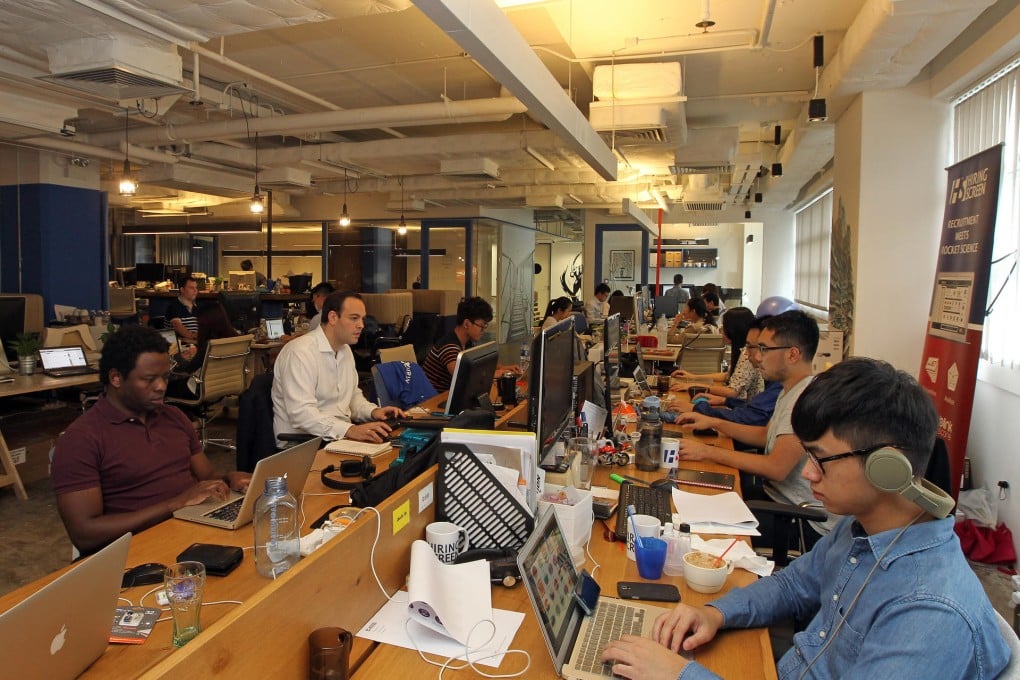How big business helps foster Hong Kong's start-up culture
They might seem unlikely bedfellows, but start-ups are finding it productive to join forces with corporates

It is everything a budding entrepreneur could wish for: prime office space, senior executives as mentors and access to potential clients and investors.
A growing number of Hong Kong blue-chip companies are offering all that, for free, in packages called accelerators - short-term, intensive programmes that help start-ups improve their business models and introduce them to professional investors.
Since the whole point of start-ups is to disrupt traditional business models, for big businesses to give them a leg-up is akin to Goliath helping David with target practice: it does not seem to be in their best interest.
Yet, multinationals outside Hong Kong, from Nike to Royal Dutch Shell, have been running accelerators or in-house incubators for years. Only now are the local Goliaths beginning to buy into the idea that supporting start-ups is good business, however unlikely it sounds.
DBS, Southeast Asia's biggest bank, has recently launched an accelerator focusing on financial technology products. It supplies a 5,000 sq ft co-working space in Wan Chai and has assigned its own staff as mentors to 10 participants. Companies such as Tofupay (a service that aims to make online transactions cheaper and easier for merchants in the region) and SuperFluid (a Kenyan start-up offering a financial management app and analytics platform that helps businesses mine consumer data) are among those that have been selected from more than 140 applicants in more than 30 countries.
It is a way to get the AIA name out there, tell people we are not a stodgy insurance company
Through the programme, the Singapore bank hopes to find new ideas on how technology can improve financial services and how to become more creative and quicker on its feet. It owns no stake in the companies and has no exclusive right to use their products.